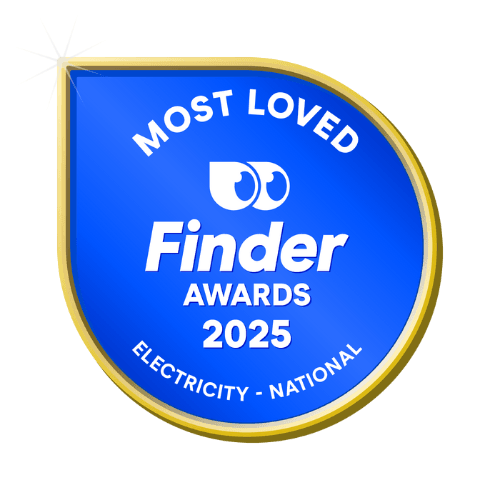How do I compare electricity plans?
Compare usage rates
Don't just look at the discounts being offered by a provider. Compare both usage rates (cents per kWh) and daily supply charges. Our average cost of electricity page can guide you here. Just keep your last bill handy.
Understand the reference price or default offer
The reference price applies to households in NSW, SA, southeast QLD and the ACT. In VIC it's known as the Victorian Default Offer. Some other terminology you'll see floating around is benchmark pricing or default offer. This is set each year on 1 July by energy regulators. It's in place to help you compare plans. You always want to get a plan that's below the reference price.
Look out for additional costs
You should also compare extra costs by electricity retailers such as credit card fees, move-in fees and disconnection charges. One retailer may charge you around $13 for disconnecting you, another could charge you $44.
Understand your household's energy consumption
Knowing how much electricity you use and when you use it can aid you to pick a tariff type that can help you minimise your costs. For example, if you're home during off peak hours and happy to run your power hungry appliances then such as a clothes dryer, a time of use tariff can help you with a lower usage rate for this period. Read our guide to energy tariffs to see how you could save by switching to a different one.
Look at average electricity bills for your state
Use our guide to average energy bills by state to see if you're paying more or less than the average. If you're paying well above this, it might be time to compare, switch and save.
![]()
Australians paid over $4 billion in loyalty tax for energy
Our research has found that we're still getting stuck in a loyalty tax loop with energy plans as electricity and gas aren't easy products to understand, so we tend to switch far less often. Find out how we've calculated how much extra you're paying on your utilities bill.

"Energy prices have gone up a lot but I've found it can also be useful to check how much energy is actually being used. My last bill was higher than I expected – both in price and usage. Turns out our old electric hot water system was malfunctioning, which meant it was using more energy and more water. We've replaced it with a newer, energy efficient model, which should be reflected in our next energy bill."
How do electricity discounts work?
There are three main types of discounts:
- Guaranteed discounts. These are discounts which you don't have to do anything special to get. However, they'll usually only apply for a certain period of time after signing up with the retailer, so they aren't a forever solution to your power costs.
- Conditional discounts/credits. These are, as stated in the name, conditional. That means you will only receive the benefit so long as you meet the conditions, which might not be practical or possible all the time for you or your household. It's better to look for guaranteed discounts that you'll receive no matter what.
- Incentives. Incentives are designed to lure you into switching from your current energy provider to another one. They usually take the form of perks (like movie tickets or Qantas Points) and sign-up credits. Since these are one-off things, you're better off choosing the energy plan that will better suit your needs in the long run, though we discuss some of the better incentives available below.
Latest energy discounts for February 2026
Why is my electricity bill getting so expensive?
Besides inflation, the main driver of rising prices is wholesale energy costs that makeup a third or a half of our electricity bill.
This is impacting households and small businesses in NSW, VIC, SA, QLD and TAS with prices going up by 9.5% to 25% - VIC's the hardest hit and TAS is least impacted.
Besides this, a few reasons your bills could be more expensive are:
- Since heating and cooling already make up about 40% of your bill, more time at home means more temperature control. This is a common culprit for inflated power bills, and you can find more about how to minimise costs in our heating and cooling guides.
- You're using energy inefficient appliances that are power guzzlers and can add hundreds of dollars to your bill.
- The discounts on your electricity plan have expired. Many electricity plans will give you a fixed discount for the first 12 months or so. Once that period has expired, the prices will rise again leading to a sudden spike in your energy bill. Comparing your electricity plan and finding one with better rates will go a long way to lowering it again.
Average electricity bill in Australia
Here's how quarterly power bills compare across the country, state by state.
How do I understand the jargon on my electricity bill?
Reading your electricity bill can be daunting if you don't know what any of it means. Check our glossary so you can understand what the jargon means.
"To make sure I remain on a competitive plan, I review my energy provider and plan annually. It might sound like overkill, but it's not - promotions and pricing change annually so if you aren't comparing each year, it's likely you're not on the best plan. I always check what promos are out there and consider what saves me the most. I like paying via direct debit for electricity so direct debit and pay on time discounts are a winner for me. Always consider the saving alongside the cost of the plan though and don't pay more just to access a promotion if the total cost doesn't stack."
2025 Finder Electricity Customer Satisfaction Award winners [National]

Most Loved - Red Energy
Red Energy was voted the most loved electricity brand, with its availability spanning most major states and territories, including NSW, VIC, SA, QLD and the ACT. It's well-known for offering Australia-based customer support and the option to earn Qantas points.

Loved Brand - Energy Australia
EnergyAustralia was highly commended in this category. It's also available across most states and territories, including NSW, QLD, SA, VIC, and the ACT. It offers a range of plans, such as a seniors plan with special discounts, or fixed-rate plans where you can lock in the price for 12 months.

Loved Brand - Alinta Energy
Alinta Energy was also a runner-up in this category, with availability spanning across the four major states: NSW, VIC, QLD and SA. You'll have access to an Australian call centre as well as its rewards shop discounts.
Why compare energy with Finder?

We know our stuff. Our experts review hundreds of plans each month. It's hard work, but we love it.
You can rely on us. We update plan data on dozens of providers daily, and we're constantly fact-checking.
We're here to help. We've helped millions of Aussies find cheaper energy. That's pretty powerful.
Frequently asked questions
Sources
Read more on Energy
-
Time of use vs single rate tariff
Can you save money by using energy at certain times of the day on a time of use plan?
-
Red Energy vs Origin
Red Energy vs Origin Energy: Compare rates, plans, features and incentives in four states.
-
Origin vs ENGIE (formerly Simply Energy)
Origin vs Simply Energy: Which brand offers better electricity rates in your state?
-
What is the average cost of electricity (per kWh) in Australia?
What you pay per unit of electricity can vary based on a range of factors.
-
AGL vs EnergyAustralia
AGL and EnergyAustralia are closely matched on price but AGL fares slightly better for additional perks such as bundling offers.




